Having a refrigerator in your RV is a huge help in adding comfort and convenience to your vacation. With an RV refrigerator, you can cook more meals, have more fresh ingredients, and entertain more people. There are a few differences between a typical home refrigerator and an RV refrigerator. RV refrigerators are built with the understanding that they will be turned on and off frequently, as RVs are not always plugged into shore power. Because they are not the same type of refrigerator as typical home fridges, we have a few tips as well on how to increase their effectiveness and improve your refrigerator experience (For example: a good rule of thumb is to turn it on a day before going camping so that it has enough time to cool down. When you're not using it, turn it off to conserve energy)
Refrigerator Types
There are two main types of refrigerators; compressor-driven and absorption refrigerators. Absorption refrigerators are more common, often being called "residential-style refrigerators". This term can be confusing, though, as some RV manufacturers use this term to describe the design and others use it to mean a refrigerator that's made to be used in a fixed residence. These refrigerators can run off of LP gas, making them flexible with their energy source. A "two-way fridge" is a fridge that can run off of both AC power and LP gas. A "three-way fridge" is a fridge that can run off of AC power, DC power, and LP gas, able to run off of shore power, a generator, propane gas, or house batteries. This kind of fridge is more flexible, as it can switch from battery power to LP gas to conserve energy. This kind of fridge doesn't cool as quickly, evenly, or efficiently, though. Also, you must park the RV perfectly level for the fridge to work properly. A compressor refrigerator is a fridge that's powered by AC or DC power. It can be run off of shore power if the RV is plugged in or off of the batteries if it is not plugged into the shore power. If the refrigerator is only able to run off of AC power, then you will need to get an inverter for times when the RV is not plugged into shore power or a generator. These fridges tend to cool down faster and more efficiently than the others and are not affected by altitude.
With these choices, how do you know which one to get? Well, there are a few questions you can ask yourself to figure this problem out.
- How much food do you want to store? If you cook a lot or if you camp with a large family or group of people, you might be looking for a larger capacity. In this situation, then a "residential-style" fridge would be a good choice. When you are plugged into shore power, you'll be able to power it and if you go boondocking, then you'll need to upgrade your battery bank or solar capacity to make up for the power needs. If you don't need much food, then a smaller, space-saving fridge might be better.
- Is your battery bank easily accessible? If your battery bank is not accessible, then you might want to consider an absorption fridge. These fridges work better with this, as a "residential-style" fridge works best with an upgraded battery bank and an AC/DC compressor fridge can drain your battery bank quickly.
- Would you like to refill propane less? If you don't want to fill up your propane tank as often, then your best bet is the compressor fridge. Keep in mind, though, that the less propane you want to use, the more upgraded your battery/solar capacity needs to be.
- Are you always perfectly level? If you're always level, then the type of fridge won't matter. If not, then a compressor fridge might be best for you.
- Do you primarily boondock? If you like to go dry camping (or boondocking) then you should look into an absorption fridge (unless you can upgrade your battery bank).
RV Refrigerator Maintenance
With each addition to your RV, there is a little more work that needs done to keep it looking and working nice. To help you keep your refrigerator up and running as smoothly as possible, take a look at these maintenance tips that are designed to help keep your fridge in good condition. As always, if you are unsure about your fridge or if it starts having problems, then consult the manufacturer or a certified technician.
- Open the door as little as possible and try to limit the amount of time that the door is open.
- Make sure your RV is level if you're using an absorption fridge.
- Make sure that it's not overstuffed with food so that it can cool efficiently.
- Consider a fridge fan to circulate more air inside the fridge if you're using an absorption fridge (helps keep a more consistent temperature).
- Absorption fridges should be defrosted monthly or bi-monthly.
- Take it in for refrigerator service. Flue cleaning and an airflow check will keep your refrigerator run smoothly. With a "residential-style" fridge, you'll want an RV appliance check, especially if your RV is stationary for long periods of time (disuse can cause more damage to an RV fridge than misuse).
- Keep an eye on the evaporator inside. If it starts to cover the fins, defrost your refrigerator or simply take a hair dryer and melt the ice.
- Also, don't let your freezer become an ice block.
- Check the outside condenser coil and propane components at least once a year, especially if you haven't used your fridge in a while or if you're experiencing problems. Remove the outside vent and check for any dust, cobwebs, nests, or general debris. If necessary, use compressed air to blow it clean or simply brush or wipe it clean.
Tips and Tricks
We have asked many people to tell us their tips for keeping their fridges working their best and have collected them here. Check out a few of them and keep your fridge working its best!
- Keep your RV and fridge level. Over time, an RV refrigerator cooling unit operated off-level can be permanently damaged.
- Turn on the refrigerator a day before you plan on leaving and don't put any food in it until you leave. If possible, freeze the food that you are bringing as well. This helps it work more efficiently by not forcing it to cool room-temperature foods. Make sure not to overpack it, either. There needs to be space between the foods for the air to circulate throughout the place.
- To help with circulation, try investing in an inexpensive battery operated refrigerator fan. Place it in the front compartment blowing upwards into the rest of the compartment. This will improve the efficiency by circulating the air and helping it keep cool.
- Periodically inspect the back of the fridge and the roof vent for any obstructions like bird nests, leaves, or other debris that might prevent excess heat from escaping.
- Install a 12V thermostatically controlled refrigerator vent fan at the back of the fridge. It removes the heat from behind the fridge, improving the fridge's performance by up to 40 percent. Some RV refrigerators already have these but if yours doesn't, then it could really help its efficiency.
- If it's cold outside, you can lower the power and when it's hot out, you might need to raise the power. Some fridges are pre-set and cannot be controlled for this, though. Also, try parking your RV in the shade to keep it naturally cooler.
- Always keep a thermometer in the food compartment to make sure it's below 40 degrees. This will keep your food from accidentally spoiling from a too-high temperature. This will also help prevent your fridge from becoming too cold.
- When you're on the road, you don't need the fridge to be turned on. If the food is already cold, then it won't become ruined if the fridge door stays closed the entire time.



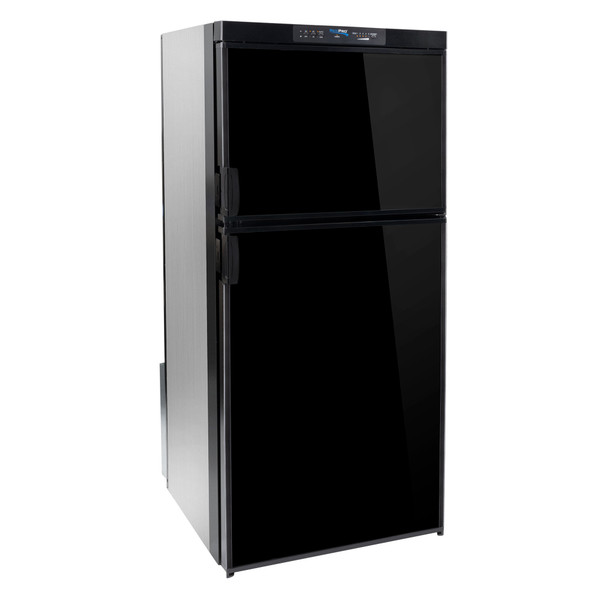
 $1,549.95
$1,549.95
 $1,299.95
$1,299.95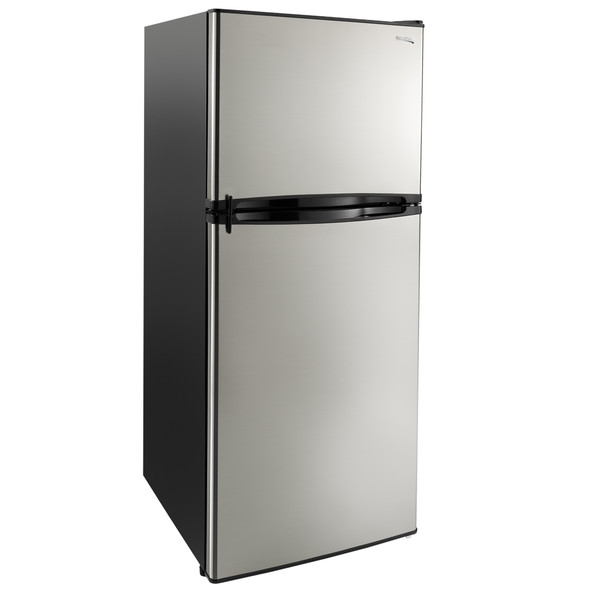
 $1,299.95
$1,299.95
 $689.95
$689.95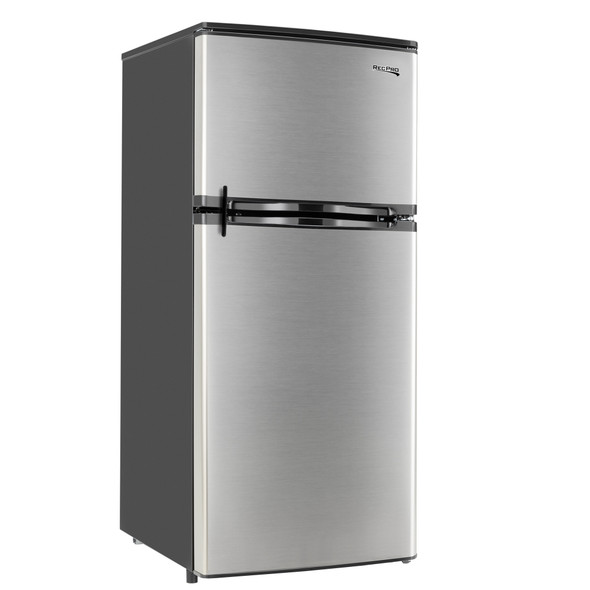
 $689.95
$689.95
 $589.95
$589.95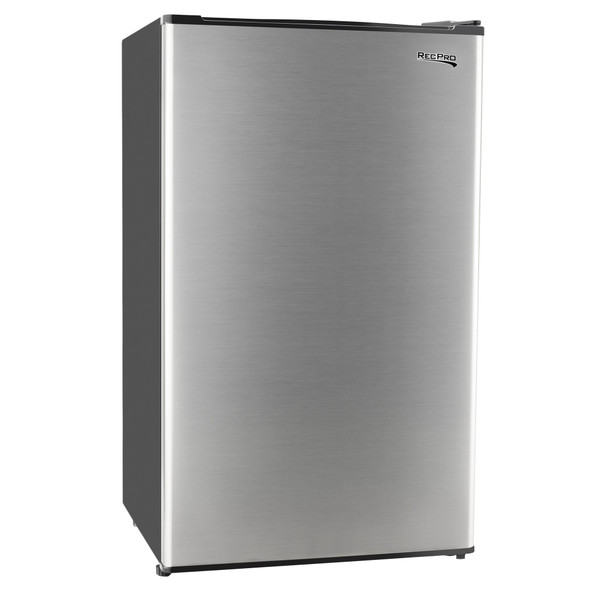
 $589.95
$589.95
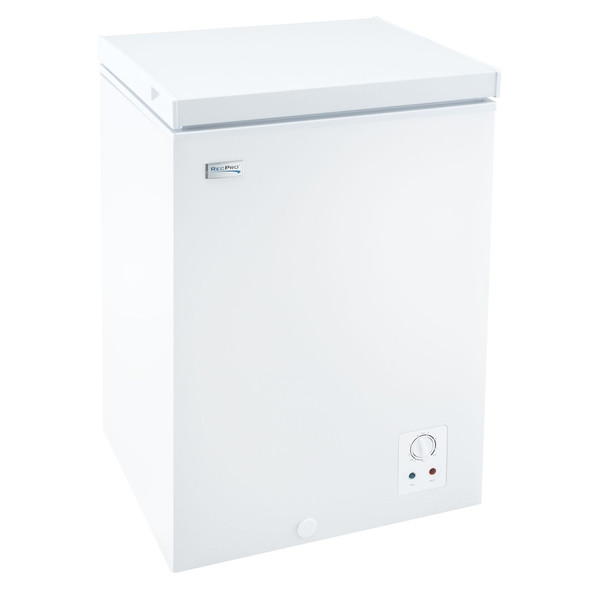 $569.95
$569.95
 $344.95
$344.95
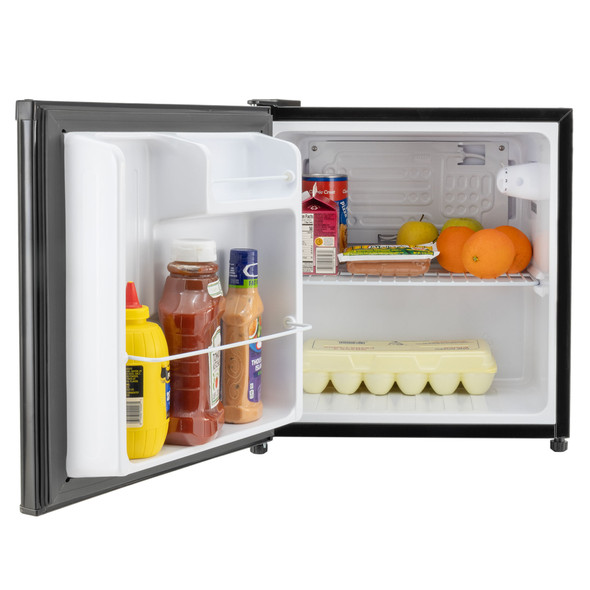 $314.95
$314.95
 $309.95
$309.95 $51.95
$51.95
 $25.95
$25.95
 $25.95
$25.95
